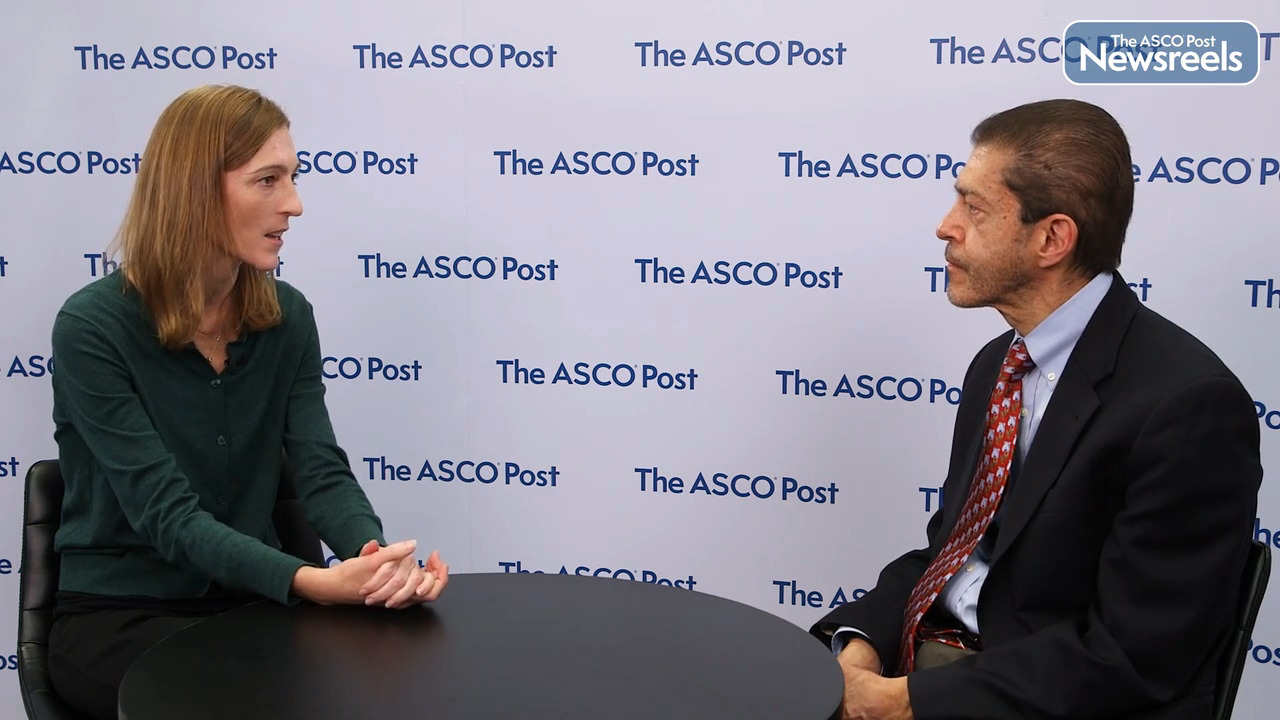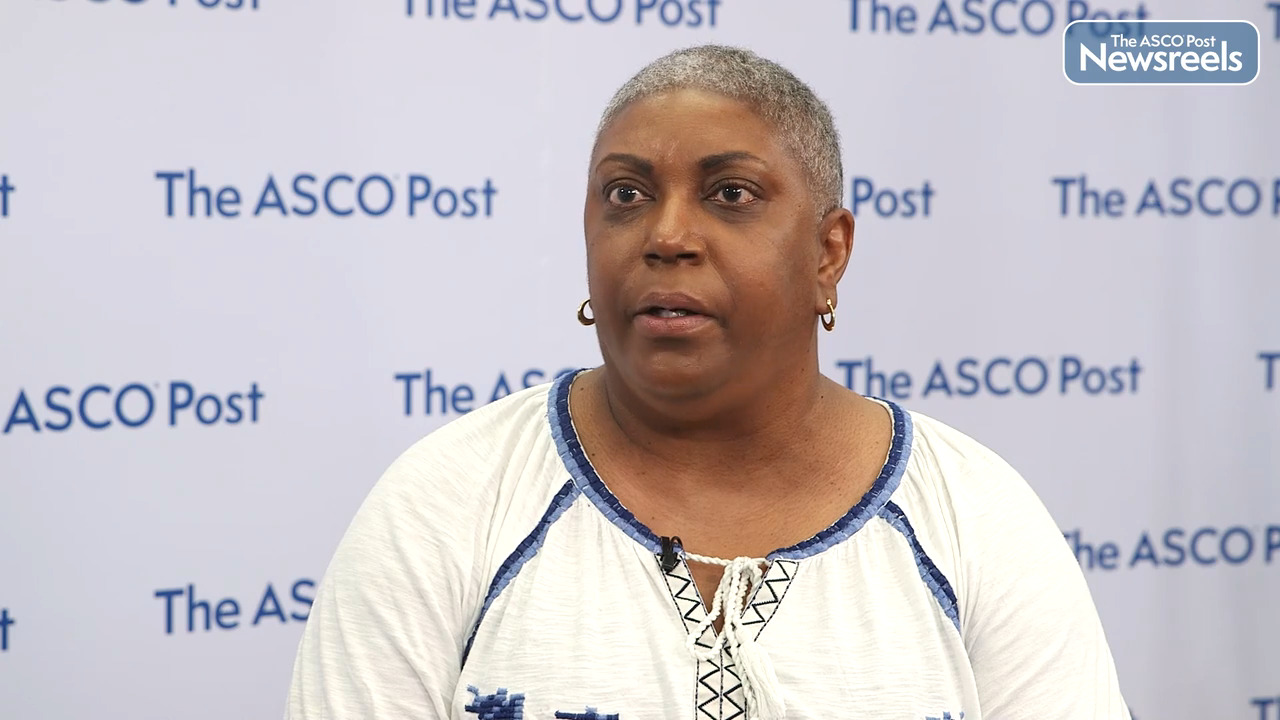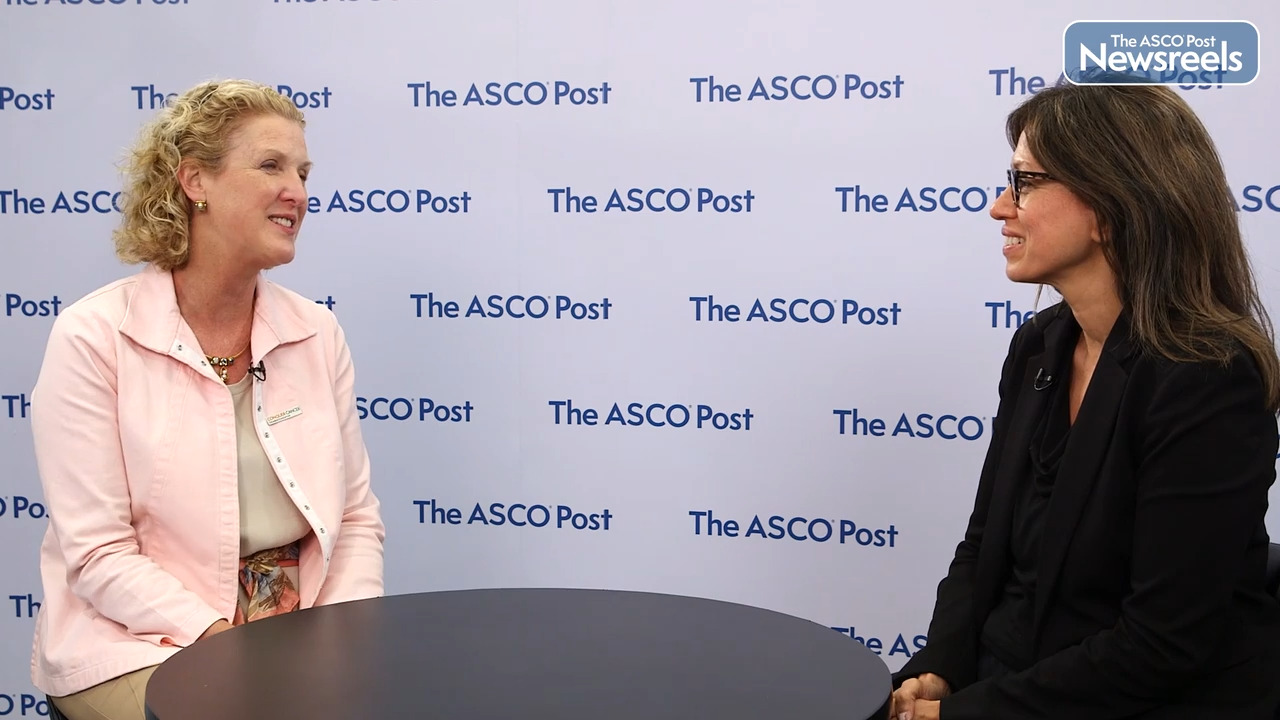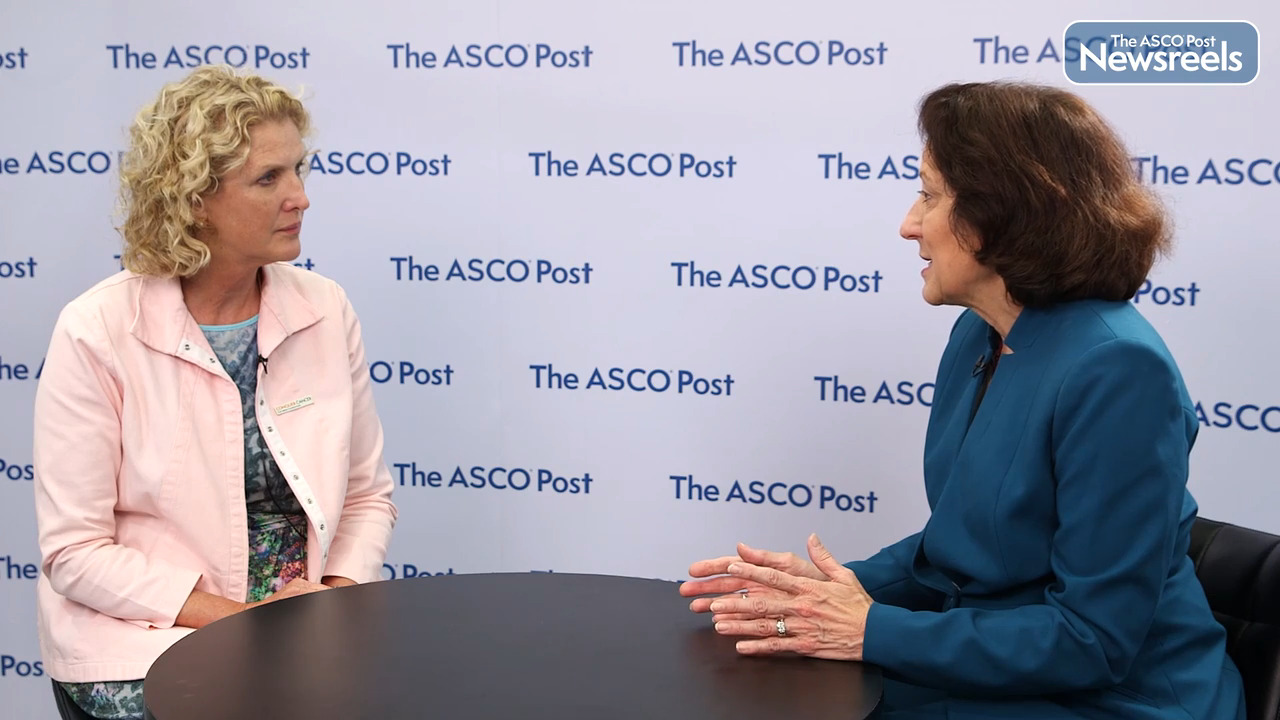Akihiro Ohba, MD, on Biliary Tract Cancer: New Findings on Fam-Trastuzumab Deruxtecan-nxki
2022 ASCO Annual Meeting
Akihiro Ohba, MD, of Japan’s National Cancer Center Hospital, discusses phase II data from the HERB trial on fam-trastuzumab deruxtecan-nxki, which showed activity in patients with HER2-expressing unresectable or recurrent biliary tract cancer (Abstract 4006).
Transcript
Disclaimer: This video transcript has not been proofread or edited and may contain errors.
The HERB trial is an investigator-initiated, multicenter, single-arm Phase II trial which evaluate the efficacy and the safety of trastuzumab deruxtecan, T-DXd, in patient with HER2-expressing biliary tract cancers. In 2016, when we began to design this study, there were no effective second-line chemotherapy regiments and no effective targeted therapies for biliary tract cancers. Moreover, even breast and gastric cancers, T-DXd did not have strong evidence, but the early efficacy signs of T-DXd in breast cancer and the HER2-positive rate in biliary tract cancer made us decide to conduct this trial.
Before we ran the trial, we examined the tissue sample of more than 400 biliary tract cancer cases by HER2 testing and found that HER2 expression patterns were more similar to gastric cancer than breast cancer. We used the diagnostic criterion for this trial. Patient was screened in 30 Japanese centers taking part in the SCRUM-Japan project and the trial was conducted in five of these 30 centers. A key inclusion criteria was histologically confirmed unresectable or recurrent biliary tract cancer, centrally confirmed HER2-expressing status and refractory or intolerant to treatment, including gemcitabine. The primary endpoint was confirmed objective response rate in HER2-positive patient by blinded independent central review, BICR.
During my year, we enrolled 32 patient, 24 HER2-positive, and eight were HER2-low-expressing. Two ineligible patients were excluded from the efficacy analysis. Of the 22 HER2-positive eligible patients, the primary endpoint of the confirmed objective response rate was 36.4%. Among the eight HER2-low-expressing patients, one patient achieved a partial response. The duration of response, progression-free survival and overall survival, was longer than we expected.
In terms of adverse events, the most common adverse events were hematological toxicities such as anemia and neutrophil count decreased and white blood cell count decreased. They were more frequent than in clinical trials of T-DXd in other cancer types. Interstitial lung disease occurred in 25% of patient, including two grade-five cases. Also, we could not find obvious risk factors. We should pay attention to all this when we're using this drug, especially for biliary tract cancers.
We think that T-DXd showed promising activity in HER2-expressing biliary tract cancers. Further evaluations are needed to confirm these findings in this patient population. On the other hand, such a large-scale trial is difficult for a limited population of HER2-positive biliary tract cancers, and we also discussed the way of drug approval based on the result of this study. I hope that such an effective drug will be available in our clinical practice.
Related Videos
The ASCO Post Staff
Carryn M. Anderson, MD, of the University of Iowa Hospital, discusses phase III results of the ROMAN trial of avasopasem manganese for patients with severe oral mucositis who are receiving chemoradiotherapy for locally advanced, nonmetastatic head and neck cancer. Compared with placebo, avasopasem manganese improved severe oral mucositis (Abstract 6005).
The ASCO Post Staff
Courtney D. DiNardo, MD, MSCE, of The University of Texas MD Anderson Cancer Center, and Jorge E. Cortes, MD, of Georgia Cancer Center at Augusta University, discuss phase III results from the ASCEMBL trial, which showed that after more than 2 years of follow-up, asciminib continued to yield superior efficacy and better safety and tolerability vs bosutinib in patients with chronic myeloid leukemia (CML) in chronic phase. These results continue to support the use of this kinase inhibitor as a new CML therapy, says Dr. Cortes, with the potential to transform the standard of care (Abstract 7004).
The ASCO Post Staff
Stephanie Walker, a former nurse and current activist with the Metastatic Breast Cancer Alliance, discusses findings from the BECOME project (Black Experience of Clinical Trials and Opportunities for Meaningful Engagement). They show that, even though Black patients comprise between 4% and 6% of all clinical trial participants, Black women with metastatic breast cancer are willing to consider taking part if steps were taken to increase their awareness, build trust through clear communication with health-care providers, involve people of shared racial/ethnic identity and health experience, and help patients find and access trials (Abstract 1014).
The ASCO Post Staff
Lisa A. Carey, MD, of the University of North Carolina Lineberger Comprehensive Cancer Center, and Shanu Modi, MD, of Memorial Sloan Kettering Cancer Center, discuss the phase III findings from the DESTINY-Breast04 trial, which compared fam-trastuzumab deruxtecan-nxki (T-DXd) vs treatment of physician’s choice (TPC) in patients with HER2-low unresectable and/or metastatic breast cancer. T-DXd is the first HER2-targeted therapy to demonstrate clinically meaningful improvement in progression-free and overall survival compared with TPC in this patient population, regardless of hormone receptor or immunohistochemistry status or prior use of CDK4/6 inhibitors (Abstract LBA3).
Lisa A. Carey, MD, of the University of North Carolina Lineberger Comprehensive Cancer Center, and Hope S. Rugo, MD, of the University of California, San Francisco, Helen Diller Family Comprehensive Cancer Center, discuss phase III results from the TROPiCS-02 trial. This study showed that sacituzumab govitecan-hziy was more beneficial than single-agent chemotherapy in terms of progression-free survival in heavily pretreated patients with hormone receptor–positive/HER2-negative and unresectable advanced breast cancer (LBA1001).





